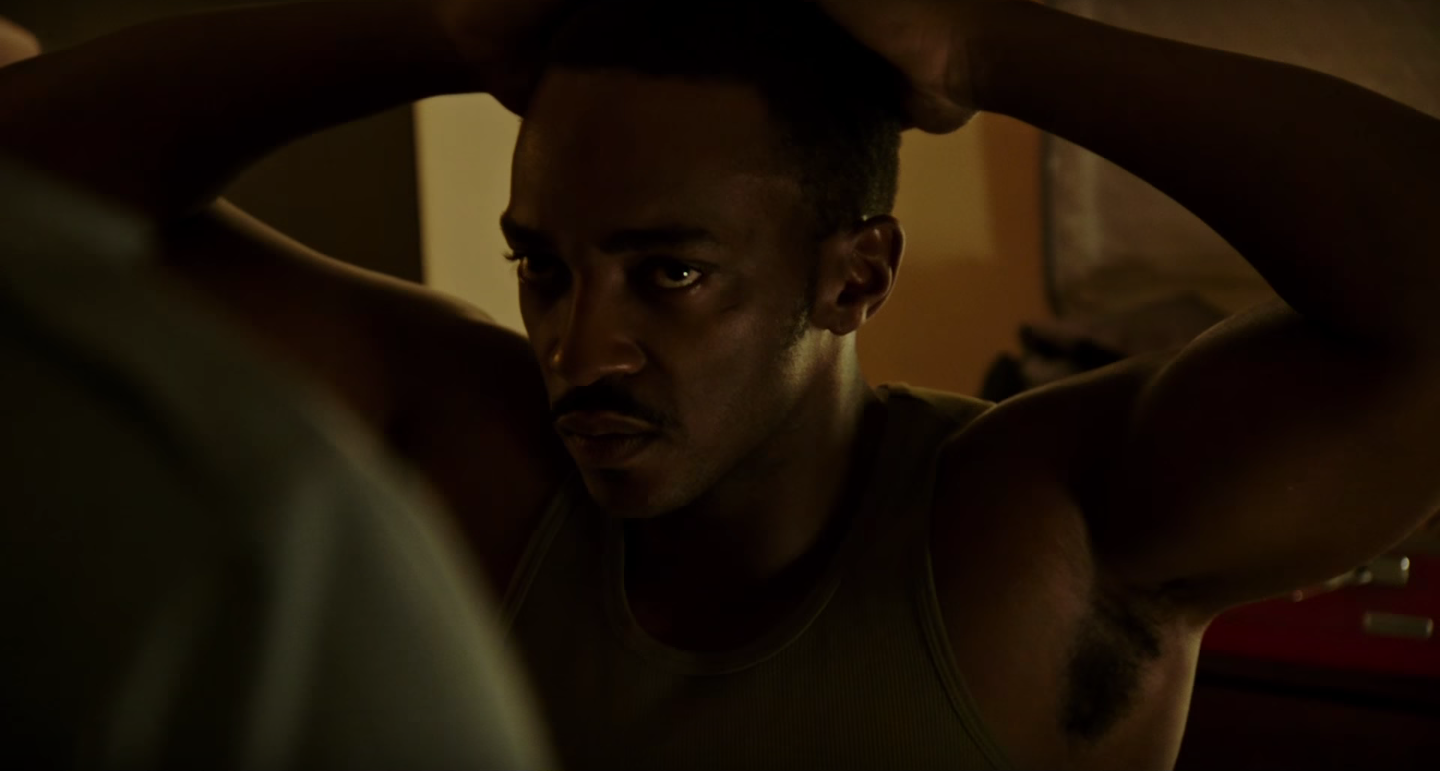I feel I must open this review with a disclaimer. I am not a historian, nor am I a resident of Detroit, nor am I black, so my understanding of the controversy around the factual accuracy, inaccuracy, or overall tone of Detroit is based largely on knowledge acquired secondhand, and this review operates on the assumption that the events portrayed in the film are as reasonably accurate to events as director Kathryn Bigelow and writer Mark Boal were able given the resources available to them. This is a team that specializes in recreating intense moments of personal drama and historical significance, so I am willing to give them the benefit of the doubt, but please don’t take that faith as a dismissal of any complaints those more knowledgeable than myself might have about the film. But as for the film itself? Detroit isn’t without its structural issues, but when it’s on point, it delivers one of the most intense and harrowing experiences you’re likely to see all year.
The title Detroit is perhaps a bit of a misnomer, as in actuality the film focuses on a very specific event of the 1967 12th Street Riot, the Algiers Motel Incident. Responding to what they believed to be gunfire coming from the motel, Detroit police officers raided the motel, then proceeded to terrorize and brutalize the hotel’s black male residents, as well as two white women who were found in their company. In the process, three black men were killed at the hands of the police.
Shooting with handheld cameras that allowed for an up close and personal examination of her subjects, Bigelow masterfully captures the tension and intensity of the moment, shocking and captivating with every escalation of events. The cold brutality of the police officers as they transform a raid for their own safety into an excuse to abuse the population they are charged with protecting, the willful ignorance of Michigan State Police and the National Guard in preventing the incident from escalating further, and the sheer terror of the black victims of this assault are palpable and real, captured by a fantastically realized collection of performances. Will Poulter offers a terrifyingly cold portrayal of Officer Philip Krauss, while John Boyega portrays the perpetually conflicted Melvin Dismukes, a security guard caught up in events with the main priority of keeping black people alive, even at the cost of their personal and social degradation. The real stars of the film, though, are those portraying the victims of the event. Algee Smith, Jacob Latimore, and Anthony Mackie offer up the most palpable combinations of internal strength and helpless terror I’ve seen in a long while, and it’s through them that we experience the horror of the events unfolding.
It’s unfortunate, then, that Detroit counters some of the good will it develops at its heights by bookending the event with superfluous and drawn-out exposition and elaboration. There is an understandable desire to contextualize the Algiers Motel Incident within the broader context of the riots, but doing so frontloads the film with extraneous scenes that ultimately offer little to no emotional payoff. The real offender, though, is the film’s epilogue, which runs for at least twenty minutes too long. Given the intensity and immediacy of how the events at the Algiers Motel were portrayed, the impact of those events is slowly sucked away by visits to the families of the victims, as well as the trial of the offending officers. None of these scenes are poorly directed or acted; far from it, in fact. But I can’t help but feel that the emotional impact of ending the film earlier and communicating supplementary information via text would have left a stronger impression than the looming sense of inevitability that lingers around the injustice we all know lies at the end of this story. It sucks the tension out of a film that had until that point thrived on it, so even if the intent was to draw out the ultimate institutional failings of the justice system, the ending is so obvious that it doesn’t carry nearly the same punch as the film’s more visceral moments.
Even so, Detroit is the culmination of superb performances and intense editing and cinematography under the calculating yet naturalistic guidance of a master director. Few films reach the levels of anxiety-inducing, white-knuckle intensity that this film does, and it is so unrelenting for the majority of its runtime that it’s hard not to become lost in the emotional turmoil. Even with the film’s faults, it’s a powerful work of cinema that exemplifies the power of police brutality through the lens of one specific event that is by no means especially out of the ordinary, then or now.













